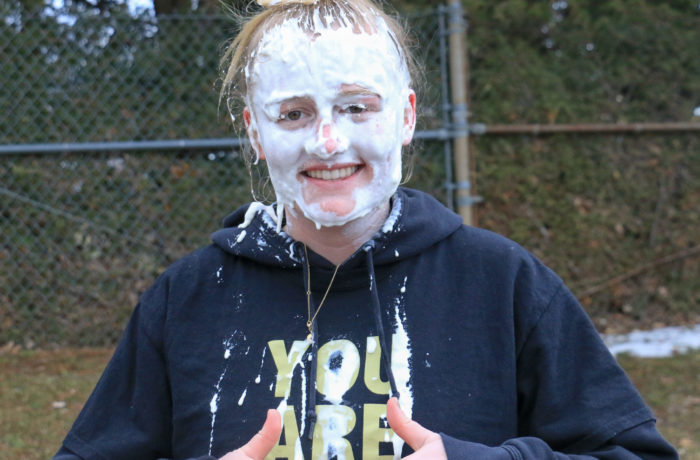By Katherine Martin
Executive Editor
Diego Calderon ‘20 sat down freshman year staring at a FASFA form. His dad handed over his taxes and told him, “Here, figure it out.” Diego, along with about 20 percent of other students at this school are first generation college students. While for some, college came as an expectation, following in their parents’ footsteps, for others the choice came with unknown hurdles. To be the first person in one’s family to attain a bachelor’s degree can mean additional social, academic, and financial pressures beyond that faced by the average college student.
“Sometimes first generation students feel in between two worlds,” Calderon said. “Feeling like you don’t fit in school because you are in a place and culture that doesn’t look like where you come from. On the other hand, people back home look at you differently because they think school is making you forget your roots.”
The extra stress starts with the application process. “Pretty much for a first gen student everything is like trial and error. It can be scary in that you don’t have a blueprint to follow,” said Kimoi Seale, coordinator of Multicultural & International Programs and Educational Initiatives and assistant dean of students. “They don’t have family members they can call upon to help them with financial aid or applying for internships or figuring out which opportunities they should take advantage of.”
“The most difficult part was that my parents literally never talked about going to college while I was in high school and I thought that more normal than it actually is,” said Aaron Deeter ’19 a psychology major. “I literally didn’t know how to apply to school. If I hadn’t gone to school with kids whose parents went to college, I probably wouldn’t have. I was able to talk to their parents about college then I took a year off after high school to apply.”
“I don’t think my parents’ expected me to want to go to college,” said Julia Bedini ’19. “When I said that I wanted to they were like “Oh my goodness we don’t have a college fund, we never started one,” But they were supportive and really proud of me. I was hindered a little bit in the application process because I didn’t know what I was doing and my parents had no idea. I was kind of like a chicken with my head cut off. Even now I’m trying to apply to grad schools and nursing schools and I am kind of doing it on my own. I don’t really have much guidance.”
Additional financial pressures are more likely for students whose parents never completed undergraduate college.
“I work a lot over the summer to pay for college and then my parents are definitely helping but it makes us very thin over the rest of the year,” Deeter said, adding that he had been more prepared for college, like his classmates, it would have helped him advance financially and academically. If he had been exposed to them, Deeter would have taken AP classes which could have allowed him to graduate early, and take out less loans.
“A big disadvantage of being first gen was the lack of preparedness,” Deeter said. “I wasn’t aware of things like AP classes that could have offset a year of school. I didn’t do fantastic in high school because I had no reason to try. I thought I was going to graduate high school and that’s it. Now that I’m at college I’m doing well and in the honors program.”
Setbacks that first gens face can trickle into life after college as well. Max and Trevor Allen are first generation twins set to graduate this May. Trevor has found his disadvantage lies in his post graduate job search.
“Leaving college and entering workforce is a disadvantage for first gens because it seems that kids who have parents who went to school and went to college have friends who can help them get a job and those are connections that my parents don’t have,” Trevor said.
Whether it be applying for college, understanding loans, or setting themselves up for a successful career post-grad, first gens typically have to put in extra work to see their goals through.
“Hard work has been the biggest part about not coming from an affluent family, to make sure it works out,” Deeter said. “I have to make sure I work hard and get the internships. I think if my parents could pay for school I wouldn’t be applying for all this stuff or going this hard core. I also want to make the most out of my money. I’ve realized that the kids that can pay for college are the ones that end up ditching the most and not actually taking advantage of it.”
For students who have the opportunity their parents did not, there can be added pressure to use their degree and education, right away.
“There’s pressure to use my diploma,” Max said. “There have been times where I wanted to go travel or do other things during school but I worked hard to make up classes after I transferred to get the college education my parents are helping us work towards.”
“Now that I have a degree everyone in my family is like ‘Oh what are you going to do with it, oh my goodness,’ and I’m like ‘Nothing yet,’” Bedini said. “So that has some pressures.”
While Bedini will be working as a home health aide and volunteering with Planned Parenthood this summer before applying to nursing school, she said she doesn’t think a diploma is the end-all be-all. She knew that she would not make a great tradesman, like her Dad and brother are, so she pursued a diploma to enter the medical field.
For Calderon, he was inspired to enroll in college in order to leverage himself in the professional world and to provide a model for his younger brother. “I’ve always been a little entrepreneur. In middle and high school I sold sneakers. Here, I started an app to help my friend. I guess I just need the diploma more to put on my resume and less for my career. A big point of me being here is so my brother has something to look up to. That’s all I really want at the end of the day, for my brother to go to college and to succeed just as well as I am.”
“I kind of hate the notion that everyone has to go to school and that if don’t go to school you’re not trying or failing at life,” Bedini said. “School isn’t for everyone and as long as you’re doing something to better yourself and find that path that’s going to let you support yourself the rest of your life, you’re okay.”


